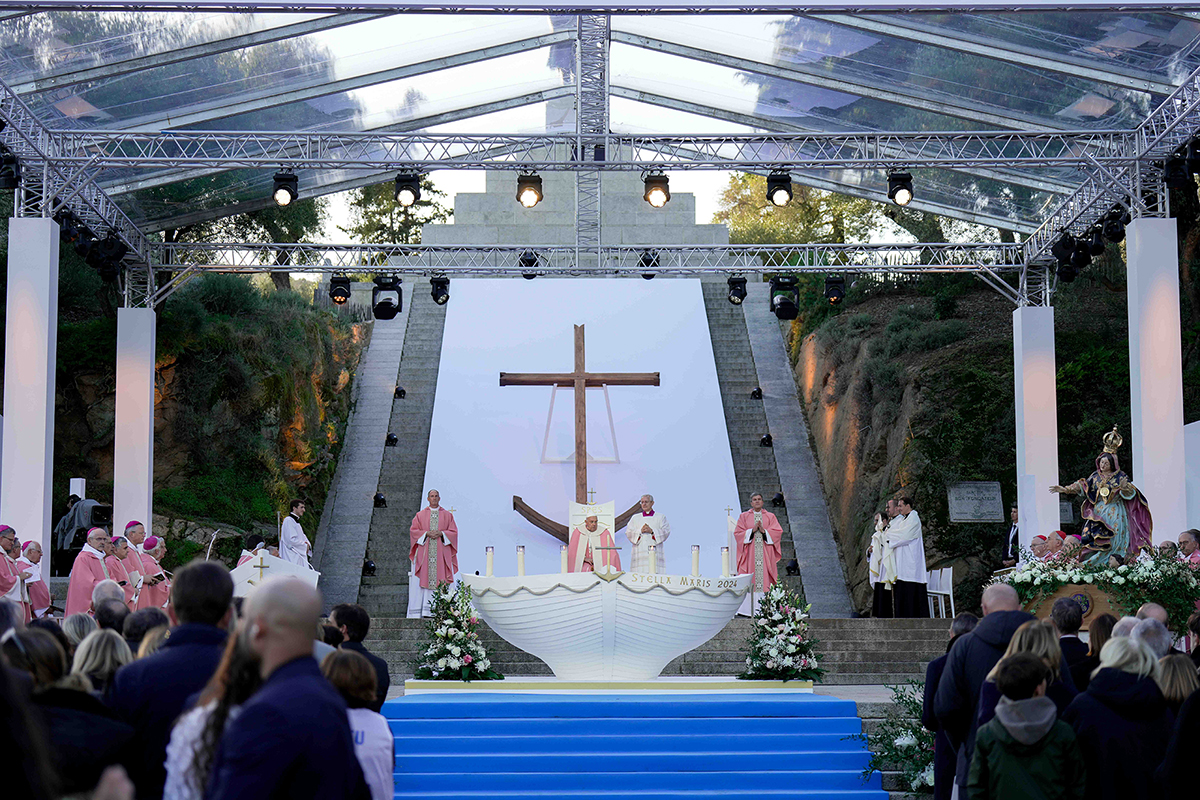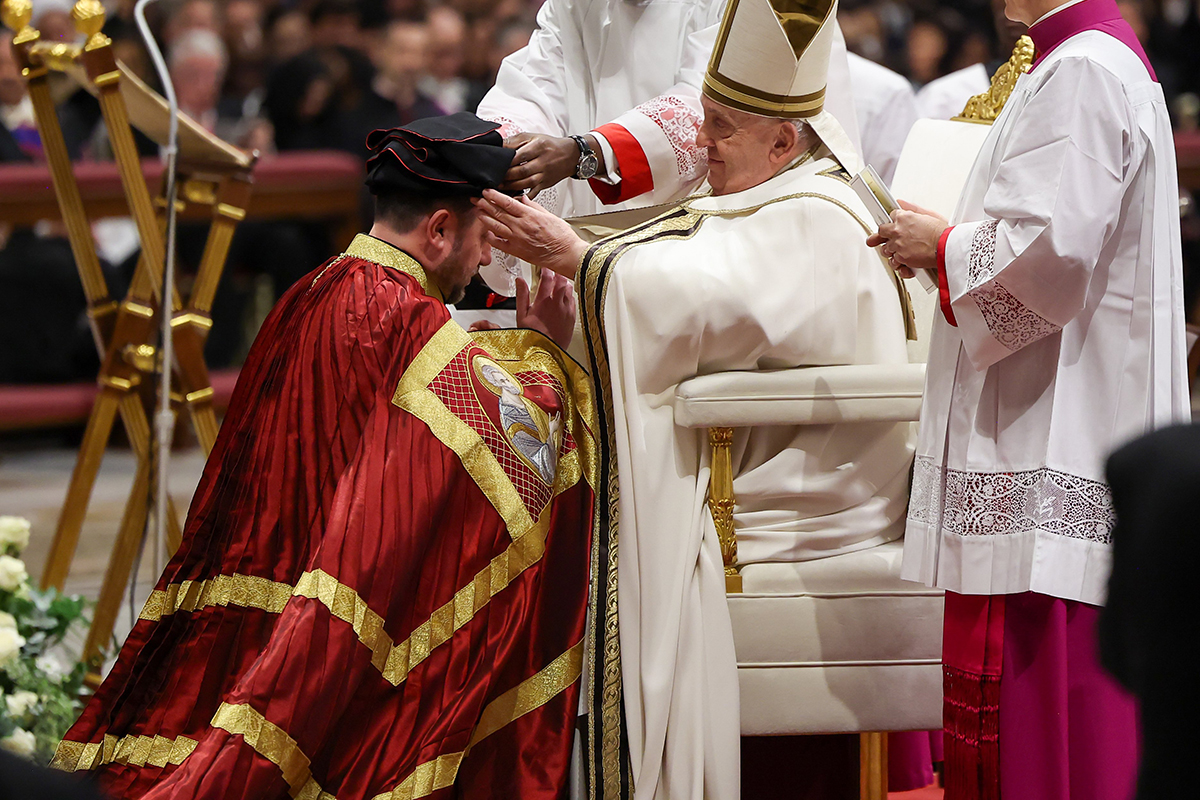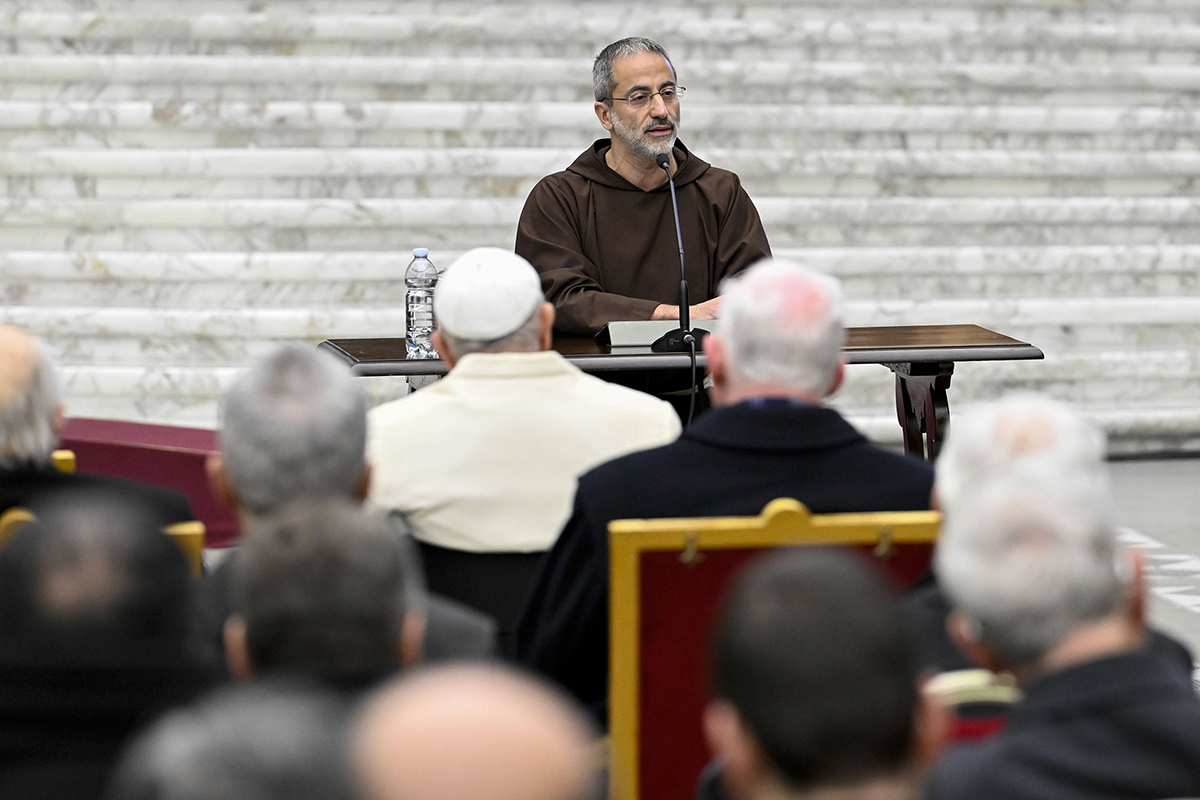Catholic leaders criticize Olympics opening ceremony performance
One portion of the ceremony included a performance that some bishops said mocked Leonardo DaVinci’s ‘The Last Supper’
Organizers of the Paris Olympic Games apologized during the Games’ daily news conference July 28 to those offended by a drag performance during the opening ceremony that the French bishops said “included scenes of mockery and derision of Christianity.”
In what was supposed to be a feast of unity and joy for the world, France put itself in the eye of the storm July 26 as television cameras showed LGBTQ+ performers, one of whom wore a crown, seated at a table. The shape of the crown brought to mind a monstrance or halo.
The scene was interpreted by many viewers as a parody of Leonardo da Vinci’s iconic wall painting in Milan’s Dominican convent of the Last Supper.
The drag queen table scene was later complemented with a nude singer appearing in the middle of a fruit basket, to represent Dionysus, ancient Greece’s God of wine, with the Olympic Games official profile on X, formerly Twitter, saying the depiction made us “aware of the absurdity of violence between human beings.”
Several bishops and other Catholic leaders from the United States and France criticized the performance.
Bishop Andrew H. Cozzens of Crookston, Minnesota, spoke out July 27 against the depiction.
In light of the seriousness of the incident, Bishop Cozzens called on the Church throughout the world to gather at Mass “with renewed zeal” and “pray for healing and forgiveness for all those who participated in this mockery.”
In a statement July 27, the French bishops deplored the scenes at the opening of the Olympic Games.
While the ceremony was a “marvelous display of beauty and joy, rich in emotion and universally acclaimed,” they said, it “unfortunately included scenes of mockery and derision of Christianity, which we deeply regret.” The Olympic celebration, they said “goes far beyond the ideological biases of a few artists,” the bishops stressed.
“Clearly there was never an intention to show disrespect to any religious group,” Olympic spokeswoman Anne Descamps said July 28. “If people have taken any offense we are, of course, really, really sorry.”
Thomas Jolly, the French creative director of the opening ceremony, said at the news conference that he “did not intend to be subversive or to mock or shock,” saying the show included “ideas from the French Republic,” “inclusive ideas,” because in France “we’re allowed to love who we want, how we want.”
Right after the apology, Bishop Robert E. Barron of Winona-Rochester, Minnesota, went on X to say that while he complained about the Last Supper scene July 27 on social media and “had no intention of returning to the issue,” he decided to do so after the “so-called apology from the organizing committee” was “anything but an apology,” he said.
Reacting to Descamp’s comments that there “was never an intention to show disrespect to any religious group,” Bishop Barron said, “Give me a break.”
“Christians were offended because it was offensive, and it was intended to be offensive,” Bishop Barron said, adding that “a real apology would be something like: This was a mistake. It should never have been done, and we’re sorry for it.” Bishop Barron also said that Christians “should keep raising our voices.”
Bishop Emmanuel Gobilliard of Digne, the special representative of the Holy See for the 2024 Paris Olympics, said July 27 that what shocked him most “is that the freedom of spirit and tone claimed by those who set this up shouldn’t be directed against others.”
Bishop Gobilliard said, “You can make fun of your own ideas, laugh at yourself, why not. But to mock the faith and religion of others in this way … is very shocking. That was my first reaction.”
He further stressed that the Olympic Games are the last place to create such divisions and that the scene violated the Olympic charter.
Rule 50 of the charter says: “It is important, on both a personal and a global level, that we keep the venues, the Olympic Village and the podium neutral and free from any form of political, religious or ethnic demonstrations.”




